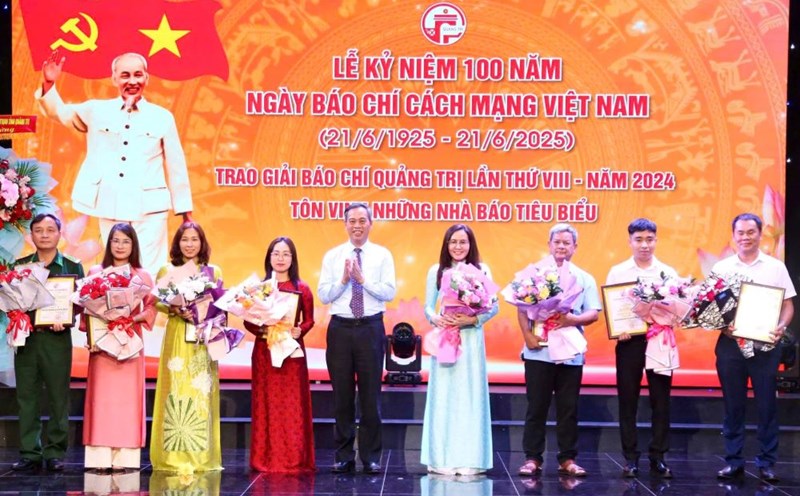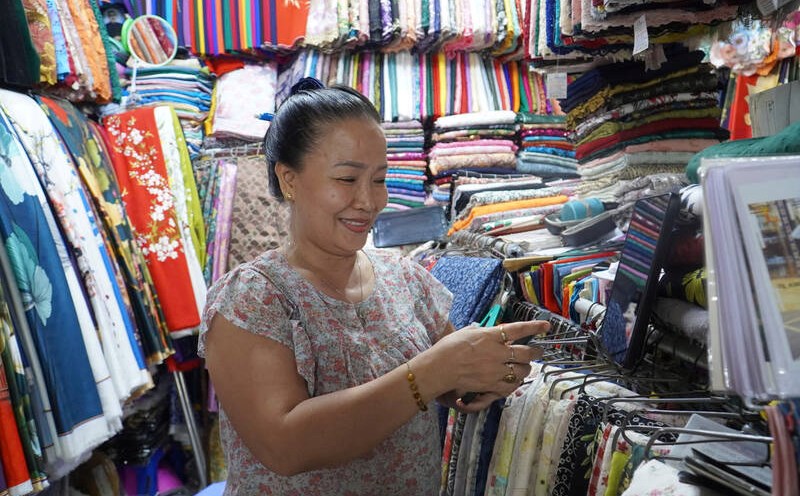Go to the grassroots
Mrs. A Lang Mai shrillfully whispered to those sitting next to her: "I have some forest bamboo shoots, stone snails and ornamental vegetables. Please help me buy some." Seeing no one respond, Mrs. Dinh Thi Thao, back and forth from the previous tables, also exclaimed: "If you can sell black beans with a bunch of sticky rice, I will buy them for you...". No one dared to speak out, because the homeroom teacher was announcing the situation at the end of the school year for their children.
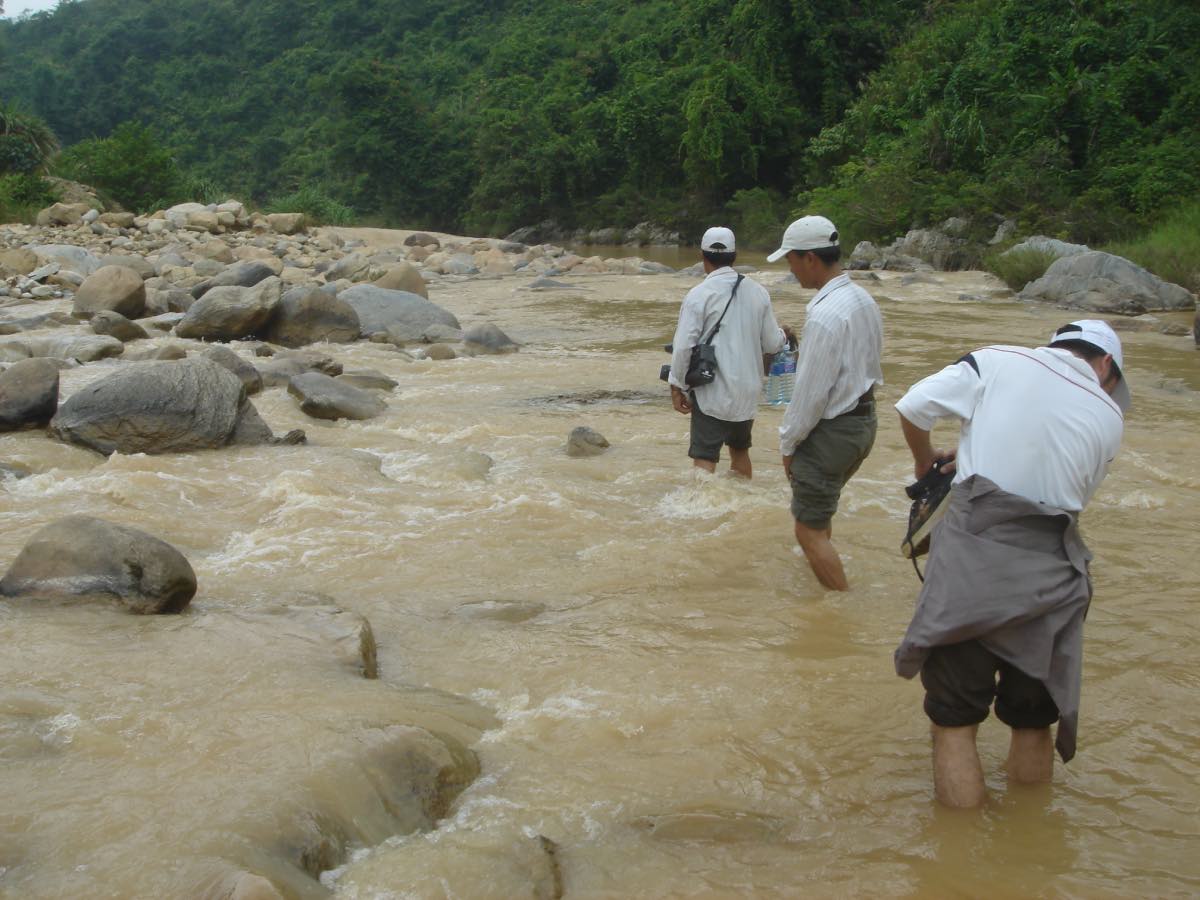
I happened to witness this "incident" in the parent-teacher meeting of Phuoc Son district school, Quang Nam while waiting to meet the principal, to interview about the situation of early school drops in mountainous areas. This type of dialogue is daily, so familiar that no one notices it in this town at the foot of Ngoc Linh peak. But that is a valuable detail, a tear-ering scene in my report on Lao Dong that year. This "fate" was "to the grassroots" taken by a colleague at Phuoc Son District Radio Station, Quang Nam.
For me and many other journalists, going to Kham Duc town, Phuoc Son district in the years 1999, 2000... was the most distant "going to the grassroots". Because it takes 2 days to get here from Da Nang on an old, dilapidated ferry. Road 14B at that time was like a "battlefield" with underpasses, foundations, river basins... full of danger. But for the reporters of the district newspaper, going to their facility is really... going. I have just witnessed the houses along the stream, at the foot of the hill, squattered by landslides. Just knowing the mothers of the children, I had to ask for permission from the teacher to leave the unfinished school hours to return... to feed the children. Recently witnessed the scene of forest protection cutting bamboo shoots, picking vegetables and picking snails... taking them to the town market to sell, to raise children.
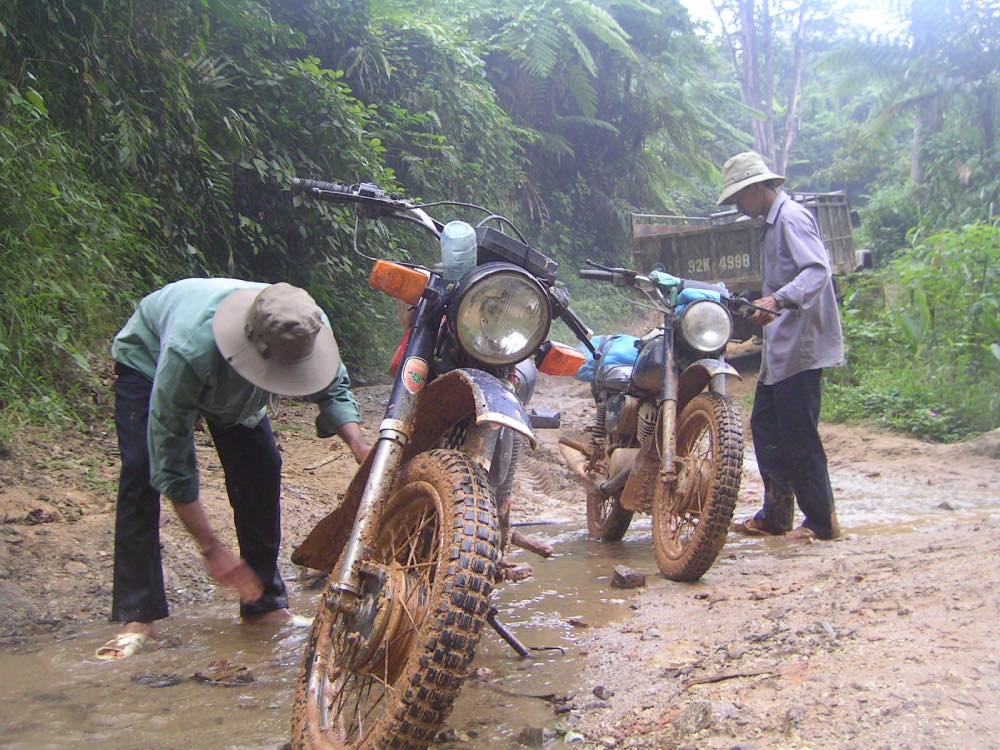
More than 10 years later, when Ho Chi Minh Road was built, I returned to this town to write about the scene of "blood flowing, gold falling", the environment being destroyed at the gold fields in Phuoc Son, to have a series of horror reports about "The Truth Behind the License". His colleague at the district station in the past has passed away. But instead of him, the junior club also stuck to the field, and was also a "native" full of knowledge of current events, culture, and society. Thanks to them, I was able to learn another even more heartbreaking truth.
Character of a district news reporter
"Gold bandits destroy forests, dig mountains, take net gold but evade taxes, even fight with scabs, explosives, mines... But, that is just a matter of taste. The fate of the local people, especially the children in this area, has only suffered serious and long-term consequences" - the reporter of the district station at that time "led" me into another corner.
I crossed the deserted fields, passing by the underpass to get into a Bh'noong village. The highland afternoon is cold, but I feel sad. sadness squeaks all over the road, in the fanciful houses of "tinged" women. Village chief Ho Van Dan in Tu village, Phuoc Duc was drunk outside the roadside cafe. We had to go find Ho Thi Phuoc, 18 years old - one of the unfortunate and crazy "women" who were advantageously accused by goldsmiths, becoming a "good guy" ("no husband but good-natured"...).
The blessing took us along the Dak Xa riverbank, through the village next to it - where he sends his children to someone to look after them to harvest rice for hire. Because he was running around the fields now like a hill, his old plastic sandals broke wide. I wade through my bare feet - perhaps because of the painful eyes in the afternoon and evening of my grief. Phuoc boasted: "I have been building a new house for 12 days now, I live near a person in the same situation."
Phuoc also did not hesitate to talk about his misfortune: "I was in 8th grade when I met goldsmith Tran Phuoc in Hiep Duc district. He said he loved her, but after 3 months of dating, he left his position when he learned that she was pregnant. According to the village custom, those who are attractive like a younger sister or a pregnant woman before getting married will be punished by the village. In addition to offering the pigs, I had to leave the village and go to the mountain to set up a tent alone to give birth to pigs...". The voice of Phuoc innocently did not complain to the lover: "When it left, I knew I had to face the village's punishments, so I went quietly into the deep forest... Fortunately, my little Ho Thi Tu Trinh was 19 months old and healthy."
The tent next to Phuoc's scene was owned by Ho Thi Tham, 19 years old. Tham's "husband" is also a goldsmith, named Tran Trieu, from Ba Xa, Quang Nam. Trieu did not leave like Phuoc's husband, but died of HIV/AIDS at the gold mine.
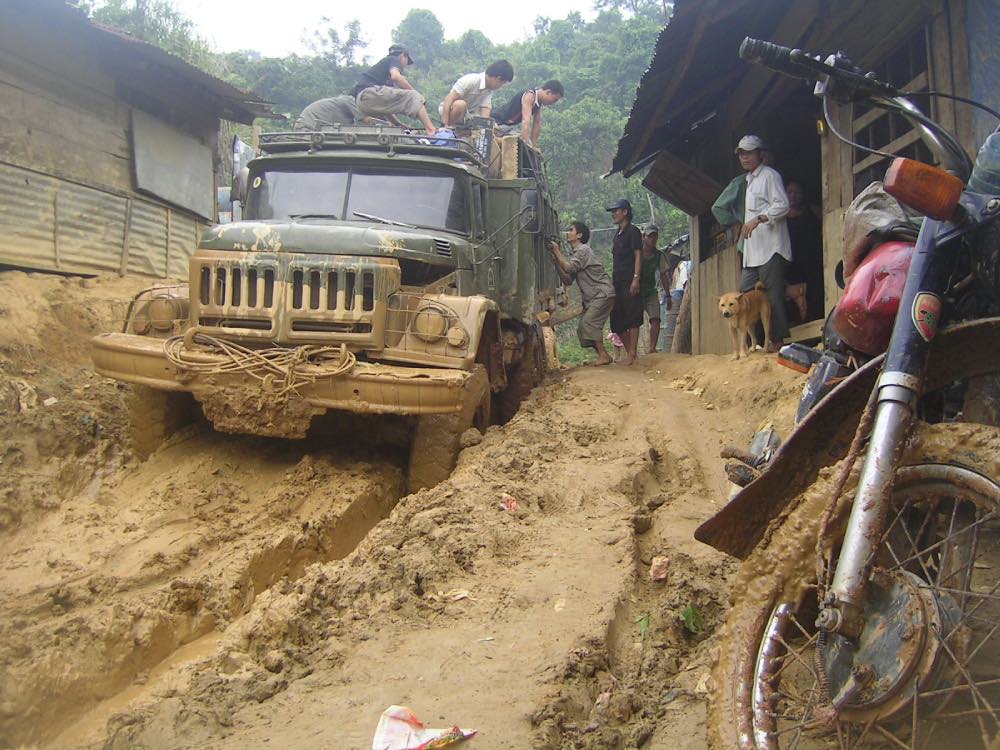
I was really overwhelmed to know that there were not only Phuoc, Tham, Do... in this "village". At that time, the whole Phuoc Duc commune had dozens of similar cases. Especially around Phuoc Loc gold mine, Phuoc Thanh - where a terrible clash with bombs and mines occurred - there are up to 16 "good guys" who have to " lie around" in the forest. The government and organizations of Phuoc Son district have made many trips to the highlands, advising the village elders to abandon the custom of child soldiers and giving birth at home, but at that time there were no results. Stories about them haunt me. These parents were fined by the village, had to go to sea to protect the toxic deep-water forest, and gave birth to their own children in countless difficulties, because they were not prepared to become mothers. Having children, they are miserable facing poverty, disease, orphans in the dark with paint and glass.
The reporter from the district explained at that time that this was a longstanding good tradition of the Bh'noong people in the Phuoc Son highlands. But since ancient times, bad customs have been almost just a legend because few people are "crazy". The strictness of the customs is highly educational and deterrent. But then, in the years from the early 90s onwards, the "golden whirlwind" accompanied by thousands of young men, all of whom were poor, brought bad habits, drugs, and prostitution, turning countless rabid poetic students into "good guys". The good meaning of this custom is clearly outdated.
Behind the legal licenses for gold mining in Phuoc Son, there were fierce digging of excavators and excavators, and the explosions of illegal mines to dig up the mountains. The "golden tornado" not only dug up mountains, devastated forests, and destroyed the environment, but those violent and greedy peach trees also overturned cultural identities, lifestyle, and good traditions of the highland villages.
New turns
Then every storm season, earthquake, flash flood... in the following years, colleagues at the district station always reported, sent us the first photos and clips of the scene about the lowlands. They not only work in journalism, but also send a message, that the people of the highlands still have many difficulties and sufferings. Information about landslides, village flooding, deaths or life difficulties due to forest bandits, illegal mining... is not just news. They want to convey through the media and central press, hoping to have a "heavier" voice, helping to rebuild the roof, build clinics, schools, and reconnect bridge spans and roads for the people. Through the press, the authorities also promptly investigate and handle environmental and resource damage.
But they themselves, the reporters of the district newspaper, are sometimes not considered civil servants, nor are they properly known as journalists. In the past 10 years, when there was a policy of removing district radio and television stations (entering the Department of Culture and Information), many people disseminated or became specialists in the district cultural department. However, even in the most difficult circumstances, they still fulfill their professional duties, fulfilling their mission as field journalists for many years. Faced with new branches, even though they may not work in press agencies, I believe in them - district news reporters always show their role as journalists in many different ways.

